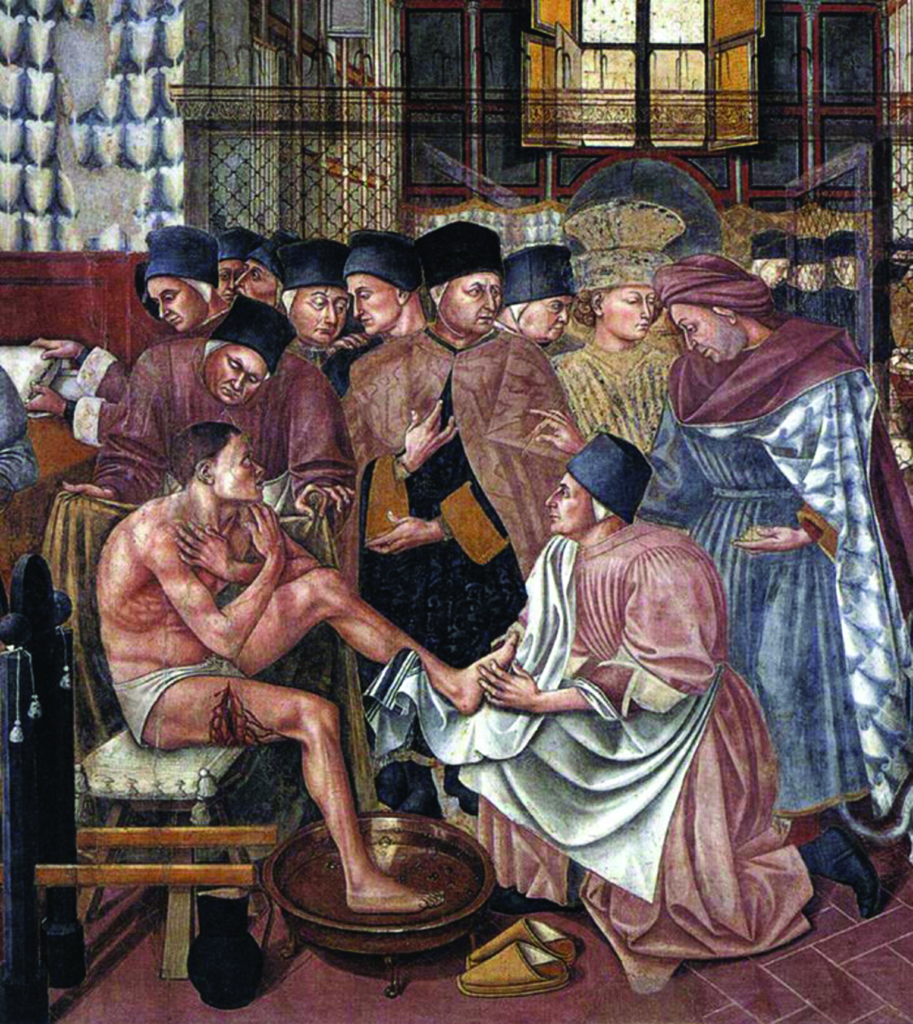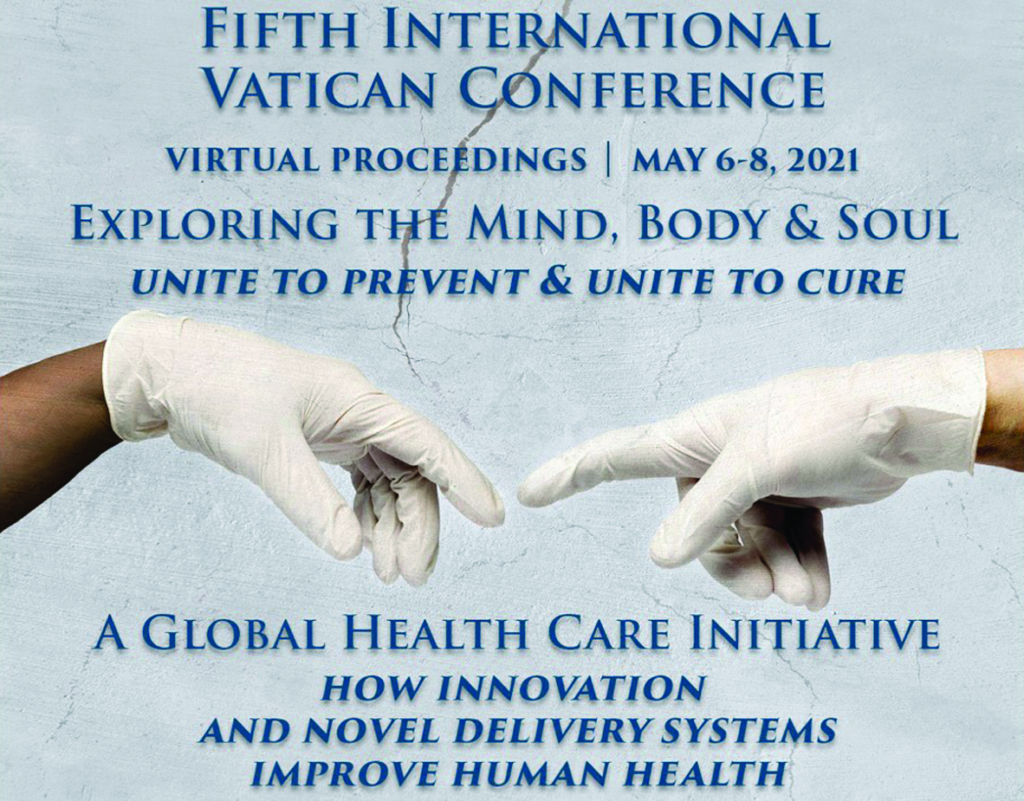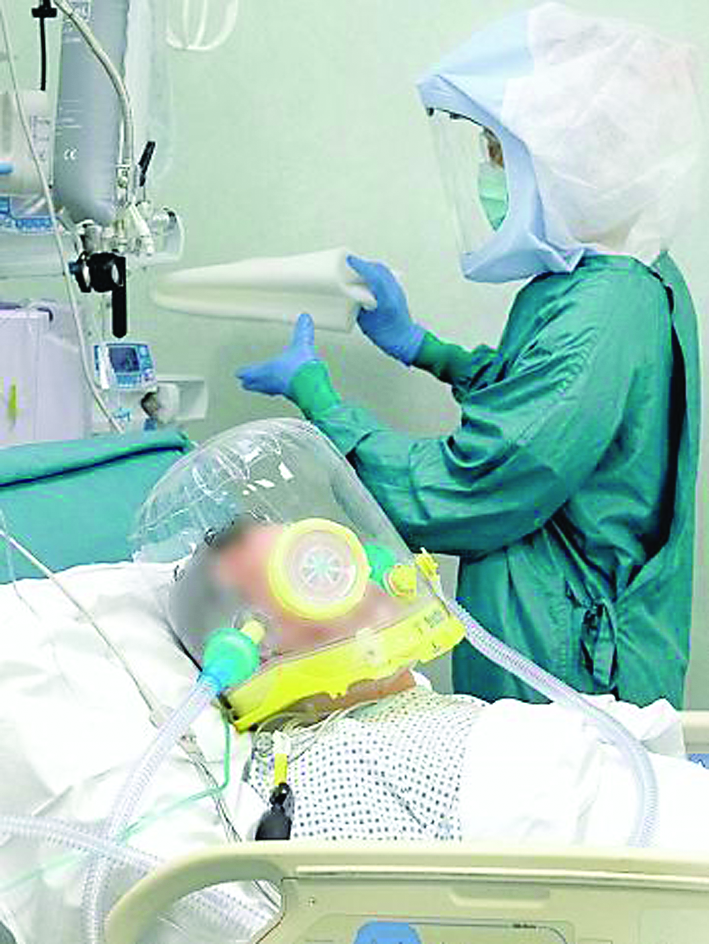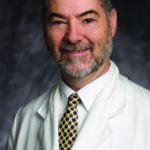Medicine is losing its bearings. The Church’s social teaching and the Hippocratic tradition can restore it
By William G. White, M.D.

Donors visiting a hospital in 1440 in Tuscany, Italy. The image is a part of a larger painting, La cura e il governo degli infermi, by Domenico di Bartolo, Santa Maria della Scala di Siena, Italy
Since her beginning the Catholic Church has considered the care of the sick an essential part of her ministry. Jesus and the apostles healed the sick. The Church and her religious orders sponsored the earliest hospitals and hospices. The monastic orders practiced hospitality, caring not only for travelers, but also for the sick and injured. The parable of the Good Samaritan exemplifies the divine command to love one’s neighbor.
Christian medical care also incorporated the Hippocratic tradition. Arising in pre-Christian Greece with the School of Hippocrates, this tradition emphasized the physician’s obligation to make the good of his patient his highest priority—above all other social, political or financial considerations. The happy confluence of the Hippocratic and the Christian traditions produced the “ethical profession of medicine” as it has been understood for centuries.
As one of the four “learned professions” (the others being the clergy, the law, and the military), medicine serves one of the basic needs of mankind, that of health (the others grace, justice and security). Learning these arts takes long years of study and experience. The patient, penitent, client or citizen who lacks such learning trusts that the learned professional will use his skills for the respective suppliant’s benefit. In turn, the professional is bound by an ethic of service. The physician, for example, is not a tradesman selling a product, but a professional (a “professed” person) who gives his services on the basis of the patient’s need for care, and then charges a fee based on the patient’s circumstances, a fee that may be waived entirely if the patient is unable to pay. The ethical physician renders his services without requiring a guarantee of payment; the patient’s need for care takes precedence. Sad to say, as the large institutions of government, insurance companies, hospital systems, and hospital-owned physician practices have taken control, these standards are rapidly disappearing.
Catholic social teachings
The Church’s social teachings refine our understanding of the role of medicine in society. The Church teaches, for example, that society has an obligation to provide basic care to all the sick, regardless of their economic status. Some assume that this responsibility requires government-run programs not only for the poor, but even for everyone. This extrapolation of Catholic teaching is invalid. Catholic social teaching does not require ignoring economic principles. If private endeavors are more effective and more efficient than government, society may employ these means without neglecting its obligation to address basic human needs. In fact, there is ample evidence that government involvement in medicine leads to lower quality, less responsive, more expensive care.
In fact, the success of voluntary private medicine confirms Catholic teaching on the “principle of subsidiarity,” which states that society’s functions are properly carried out at the smallest and most local levels possible. Child-rearing, for example, is best done in the family. If families need help, first their relatives, then voluntary associations (including the parish), and then the lowest levels of local government should assist them. Only if these local bodies cannot perform a function should the county or the state step in. The national government, in turn, should carry out only those functions (e.g. foreign relations, national defense) that the lower levels of society cannot accomplish.
But medical care, like child rearing, is an essentially personal service. It is not the manufacture of widgets, but the rendering of care by one person to another. It can be accomplished only at the personal level. Making the physician a servant of government or commerce deprives the patient of his personal physician and advocate, whose loyalty is only to him. It also deprives the physician of the ability to fulfill his highest ethical obligation: to place his patient’s needs before all others. “No one can serve two masters…” Public policy, then, while providing that all citizens’ basic needs are met, should support private voluntary endeavors as much as possible. Removing bureaucratic red tape, restoring the meaning of medical licensure as applying only to individuals who have completed medical training (not to hospitals or groups), treating employer-provided and individual insurance equitably, ending restrictions on private insurance (e.g. mandated benefits, first-dollar coverage, and the prohibition on buying insurance across state lines), and curbing abusive litigation are only a few changes that would benefit medical care without introducing the well-intentioned but ultimately destructive hand of government into the patient-physician relationship.
Vatican Health Conferences promote Big Medicine, not much Catholic social teaching

Since 2011, the Vatican’s Pontifical Council for Culture – renamed this year the Dicastery for Culture and Education – has sponsored five International Conferences on health. The most recent, just last year on May 6-8, 2021, titled “Exploring Mind, Body and Soul: How Innovation and Novel Delivery Systems Improve Human Health,” drew hundreds of participants from around the world, including government officials, health care system executives, medical researchers and pharmaceutical industry leaders; COVID vaccine manufacturer Moderna’s CEO, Stephane Bancel, even received a “Pontifical Hero Award.”
Journalist Edward Pentin, writing for the National Catholic Register, reported on whether Catholic teaching, even about fundamental issues like abortion or the nature of the human being, were being articulated in this Vatican setting. The answer he found, alas, was generally “no”:
When subjects besides ethical issues were covered about which Catholic priests, religious or laity could have shared their expertise, such as empathy and compassion, music, beauty, caregiving, the “loneliness epidemic,” mental health or aging with dignity and purpose, they were absent along with the Church’s wisdom on such topics.
Much attention was also focused on COVID-19, its vaccines, and overcoming vaccine hesitancy but with no comprehensive articulation of the Church’s view on them.
Indeed, throughout the conference, no discussion took place regarding abortion-tainted vaccines, the concerns that many vaccines have an experimental nature, or the right to refuse them on grounds of conscience for these or other ethical reasons. Instead, [Anthony] Fauci and other speakers spoke a great deal about overcoming vaccine hesitancy, saying a “deeply religious person who will listen to their clergy [is] different than me with a suit, going into an area, telling people to do something.”
Chelsea Clinton of the Clinton Foundation, who is not a Catholic and believes it is “un-Christian to ban abortion,” similarly pushed the vaccines during a panel session on “Building a More Equitable Health System for All.” Clinton advised that the foundation was doing “everything and anything we can” to make people feel comfortable having the jab, and that more regulation is needed of social media to prohibit “anti-vaccine content.” No Catholic was present on the panel to challenge her about ethical questions over the vaccines.
A segment on how to improve the medical response and build on cooperation following COVID-19 featured Pfizer CEO Albert Bourla. Cooperation between vaccine manufacturers was highlighted, as again was overcoming vaccine hesitancy, and an uncritical appraisal of the mRNA technology used in many of the COVID vaccines, which [had] yet to receive full approval by the U.S. Food and Drug Administration.
Meanwhile, the conference awarded a “Pontifical Hero Award” for inspiration and leadership to several participants including the CEO of COVID vaccine manufacturer Moderna, Stephane Bancel, and his team. Msgr. Trafny told The Register May 10 that the Vatican wanted to acknowledge their “wonderful work and strong commitment.”
A number of speakers also promoted ideas at odds with Church teaching that went uncorrected, such as Deepak Chopra, an alternative medicine advocate, who spoke of “universal consciousness which religions might call God,” that “there’s one field of consciousness which is universal,” and that “it’s differentiating into species-specific modes of knowing that we call souls.”
The Lessons of Covid
The recent history of the COVID-19 virus and the reaction thereto by government and public health officials has led to a growing awareness of the conflict between coercive acts of the state and the civil rights of citizens. The flip-flopping response of government health officials, oddly combined with an air of certainty about the correctness of their shifting recommendations and a willingness to punish those who question them, has led to an understandable skepticism about the reliability of these institutions and individuals. Revelations about the close financial ties of government officials and pharmaceutical companies have further increased the mistrust of the populace.
Vatican officials, including the Holy Father, have generally supported vaccines as both beneficial to human health and without significant risks or side effects. The current administration of the Church has declared that the universal distribution of COVID “vaccines,” without cost to the recipients, is a moral imperative. Little has been said by Church officials about the actual safety and efficacy of these shots. The word “vaccine,” as applied to the COVID-19 shots, is a misnomer. These mRNA injections are not vaccines in the correct sense of the word.
The word “vaccine” comes from the vaccinia, or cowpox virus, which Edward Jenner discovered would confer immunity against smallpox. The word has been extrapolated to cover the administration of any antigens that stimulate antibody production (immunity) to various diseases. The COVID shot, an mRNA “vaccine,” is not a vaccine at all, but a genetic manipulation that makes every recipient a “GMO” or genetically modified organism.
What then should be the response of Catholics and the Church to these events? Should Catholics submit blindly to the blandishments of both secular and religious bodies and get the shots? Should we bow meekly to government officials who claim to be “the Science,” but are in fact enriching themselves and the pharmaceutical companies they serve? Does the Catholic tradition require submitting to the zeitgeist, or is the Catholic Church committed to subject the secular world and its potentates to the scrutiny of truth?
Rejecting Secularism and Coercion

Sad to say, the advice of individual physicians to their patients in these matters has been distorted by changes in medical practice over the past generation or two. When I graduated from medical school almost a half-century ago, most physicians were independent practitioners dedicated primarily to the good of their patients. The inevitable human temptation to avarice was tempered, if not eliminated, by an ethic of service that prevailed in the organized profession of medicine and in the predominantly Christian sponsored hospitals. In other words, there was a certain social pressure on physicians to practice ethically, or else earn the disapproval of their peers.
Now most physicians are employed by secularized hospitals (some of which still retain vestiges of religious identity, but are run as profit-driven enterprises by laypeople) and large groups that supervise every aspect of physicians’ practices. The principle of moral suasion has been replaced by coercion. These entities are driven not by an ethic of service but by the motive to maximize revenues, and physicians must knuckle under if they wish to keep their jobs.
In the matter of COVID-19 in particular, tremendous pressure has been brought to bear upon physicians to toe the party line. Physicians who suggest safe, early, inexpensive treatments for the COVID-19 infection, or who raise doubts about the safety or efficacy of the COVID “vaccine,” are accused of spreading “disinformation” or “misinformation,” and have been threatened with expulsion from hospitals and medical groups and revocation of their state licenses. Only those patients who are still able to find independent physicians can rely on hearing unbiased, informed judgments about these matters.
Happily there are glimmers of hope. The Association of American Physicians and Surgeons (aapsonline.org) promotes and fights for independent ethical physicians. The growing popularity of “direct primary care,” which eschews all government and insurance third-party payments, returns control of care to patients and their physicians. Most of all, restoring the Hippocratic ethic of dedication only to the patient, and independence of physicians from the stranglehold of large institutions, will provide patients with the assurance that their needs and only their needs are the basis for their personal physician’s recommendations.
 William G. White, M.D. is a Chicago-area family physician and past president of the Catholic Medical Association of America. He is the father of twelve (seven by birth and five by marriage) and grandfather of 33.
William G. White, M.D. is a Chicago-area family physician and past president of the Catholic Medical Association of America. He is the father of twelve (seven by birth and five by marriage) and grandfather of 33.






Facebook Comments